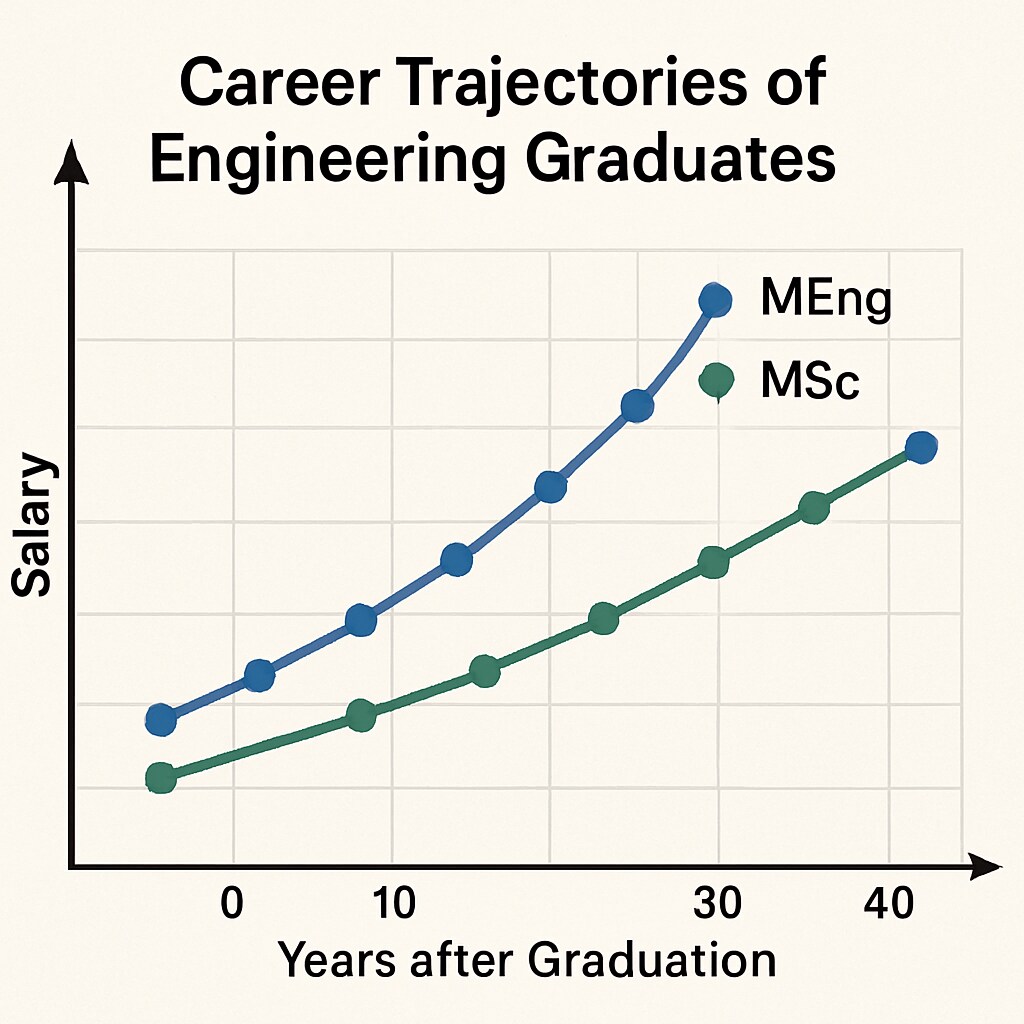When considering the future, students and their families often grapple with how to lay the groundwork for success. Specifically, for those aspiring to work in STEM fields, the intersection of design engineering, master’s degrees, career planning, and choosing between MEng (Master of Engineering) and MSc (Master of Science) degrees becomes a critical decision point. This article delves into how students at the K12 level can prepare strategically for a career in design engineering. It also examines the long-term effects of choosing specific educational pathways, and how to decide between an MEng or MSc degree for future career opportunities.
Why Early Educational Planning Matters for Design Engineering Careers
Early planning in K12 education is pivotal for students aiming to pursue specialized fields like design engineering. Building a strong foundation in mathematics, physics, and technology-related courses can have a lasting impact. For example, advanced placement (AP) or International Baccalaureate (IB) courses in STEM subjects not only prepare students for college-level rigor but also signal commitment and aptitude to potential universities.
In addition to academics, participation in engineering competitions, robotics clubs, or summer internships provides hands-on experience. These extracurricular activities help students develop problem-solving and teamwork skills, which are indispensable in engineering careers.
- Focus on core STEM subjects like calculus and physics.
- Engage in extracurriculars such as robotics or coding clubs.
- Research early about undergraduate programs that align with design engineering.

MEng vs MSc: Which Degree Best Aligns with Your Career Goals?
One of the most common dilemmas for aspiring design engineers is deciding between an MEng and an MSc degree. While both are postgraduate qualifications, their focus and career implications can differ significantly.
The MEng degree is typically application-oriented, focusing on practical engineering challenges and preparing students for industry roles. It often includes internships or collaborative projects with companies, making it ideal for students who wish to enter the workforce immediately after graduation. In contrast, the MSc degree leans towards research and theoretical knowledge, catering to students interested in pursuing doctoral studies or working in academia.
Key differences between MEng and MSc:
| Aspect | MEng | MSc |
|---|---|---|
| Focus | Practical, application-driven | Research and theory |
| Career Path | Industry roles | Academia or research |
| Program Structure | Internships, project-based learning | Thesis, research projects |
Understanding these distinctions ensures that students can align their educational choices with their long-term career aspirations.

Making Informed Decisions: Career Planning Strategies
Choosing the right educational pathway requires careful consideration of personal interests, strengths, and long-term goals. Here are some strategies to help students make smarter decisions:
- Self-Assessment: Identify your interests and career goals. Are you more drawn to hands-on problem-solving or theoretical exploration?
- Research Programs: Investigate the curriculum, faculty, and industry connections of MEng and MSc programs.
- Seek Mentorship: Connect with professionals in design engineering to gain insights into their educational and career journeys.
- Evaluate Financial Factors: Consider the cost of the program and potential return on investment for each degree.
In addition, remember to stay adaptable. Career paths in engineering are dynamic, and the skills you acquire can open doors to unexpected opportunities.
The Long-Term Impact of Educational Choices
Finally, it’s crucial to understand that the decisions made during K12 and higher education will shape a student’s career trajectory. For instance, building a robust portfolio during undergraduate studies and choosing the right master’s degree can enhance employability and specialization in competitive fields like renewable energy, AI-driven design, or sustainable engineering.
For more information on the importance of education in STEM careers, visit STEM Education on Wikipedia. Additionally, you can explore career growth trends in engineering at Engineering on Britannica.
In conclusion, early preparation, informed decision-making, and aligning educational paths with career goals are essential steps toward a successful career in design engineering. By optimizing learning opportunities and understanding the distinctions between MEng and MSc programs, students can set themselves up for a rewarding professional journey.
Readability guidance: Short paragraphs, active voice, and clear transitions ensure the article is accessible while maintaining a professional tone.


